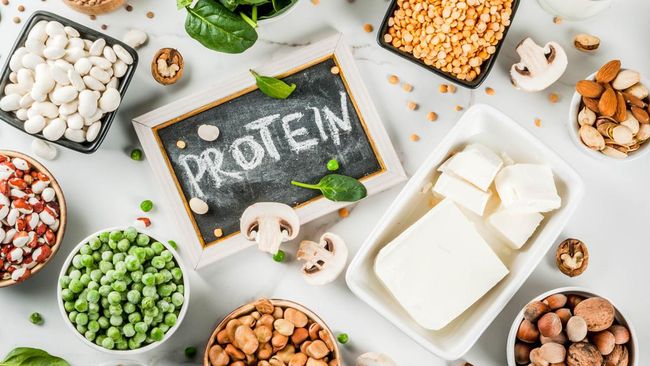
Jakarta, clubnet Indonesia
–
On
50s
, the body experiences various changes that also affect the need
nutrition
And
dietary habit
.
What is safe for consumption in the 20s or 30s is not necessarily ideal for the age of 50 years and over.
For example, you can eat three pieces of three pieces of piza without thinking.However, in the age of 50, there is an increase in cholesterol levels that need attention when overeating.
Therefore, it is important to adjust the habits of eating so that the body remains fit and healthy.
According to
Healthline
, eating patterns and proper nutritional intake in the age of 50 can reduce the risk of chronic diseases, loss of muscle mass, to osteoporosis.
A number of important nutrients that need to be fulfilled in the 50s to 60s namely protein, fiber, calcium, vitamin D, omega-3 fatty acids, vitamin B12, potassium, and antioxidants.
Healthy eating habits in the 50s
By applying the right healthy eating habits, you can enjoy old age with optimal energy and better quality of life.
Summarizing from various sources, here are nine healthy eating habits that are highly recommended for those of you who have entered the 50s.
1. Increase consumption of whole grains
Change white bread and processed paste with complex carbohydrate sources such as brown rice,
Quinoa
,
buckwheat
, And
oatmeal
.These whole grains are rich in fiber and nutrients.
Regular consumption is very good for heart health and provides long -lasting energy for the brain and body.Complex carbohydrates also help keep blood sugar levels stable.
2. Routinely eating fatty fish
The body in the 50s is more susceptible to chronic diseases such as heart disease, stroke, and diabetes.Fatty fish consumption such as salmon and bloating is highly recommended because it is rich in omega-3 fatty acids.
Omega-3 has an anti-inflammatory effect that helps reduce the risk of chronic diseases and maintain brain health.
3. Reduce salt intake
Blood pressure tends to rise as we get older.The excessive consumption of sodium can worsen this condition.
Limit your daily salt intake between 1,500 to 2,300 milligrams (mg), even better if it can be reduced up to around 50 mg per day.
Avoid processed foods and packaging which usually contain high salt.Use spices, vinegar, or natural seasoning instead of salt to give a taste to the cooking.
4. Adequate protein intake
Protein needs increase with age to maintain muscle mass and improve body tissue.Quote from
Eating well
, protein -rich food helps muscles stay strong and full stomach.
Choose low -fat protein sources such as lean meat, fish, eggs, and low -fat dairy products.Protein also helps maintain a longer feeling of fullness, thus supporting weight regulation.
Check out healthy eating habits for other 50s on the next page ..
Read More: Kris Kris Film Holds a Charity event for the Thai-Kamboja War Victim
